Collecting reptiles is a fascinating hobby that appeals to enthusiasts worldwide. Some species are highly prized for their unique characteristics, colors, and rarity. This article explores some of the most sought-after reptile species that collectors covet. Each of these reptiles has distinctive features and care requirements that make them special. Whether you are an experienced collector or just starting, these reptiles will surely capture your interest.
Blue Tree Monitor (Varanus macraei)
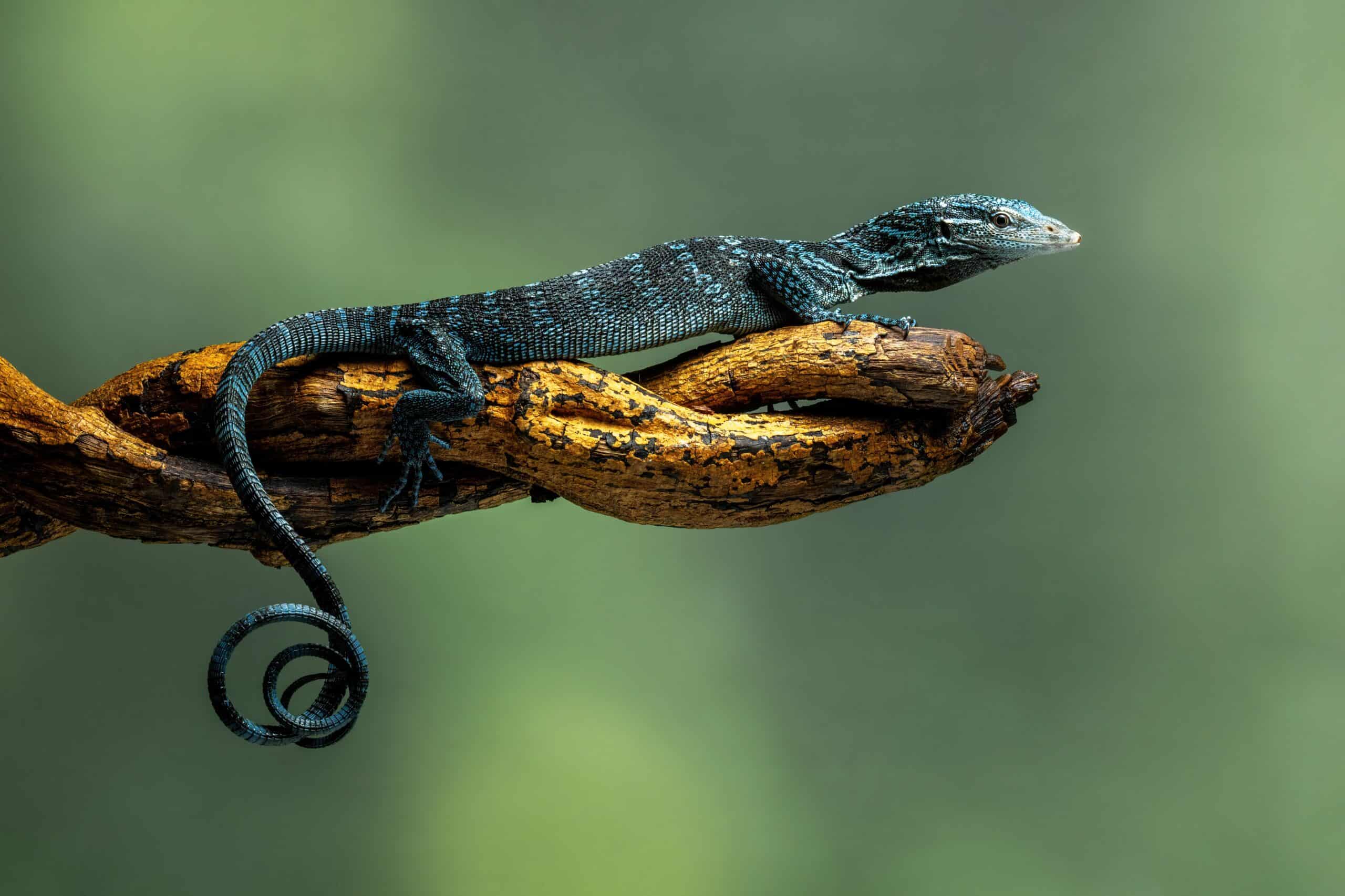
The Blue Tree Monitor, native to the islands of Indonesia, is a striking reptile known for its vivid blue coloration. Its slender body and long tail aid in its arboreal lifestyle, making it an agile climber. These monitors can grow up to 3 feet in length, requiring spacious enclosures with plenty of vertical space. Their diet mainly consists of insects, small mammals, and birds. They are considered rare and can fetch high prices in the pet trade, often ranging from $1,000 to $3,000.
Green Tree Python (Morelia viridis)
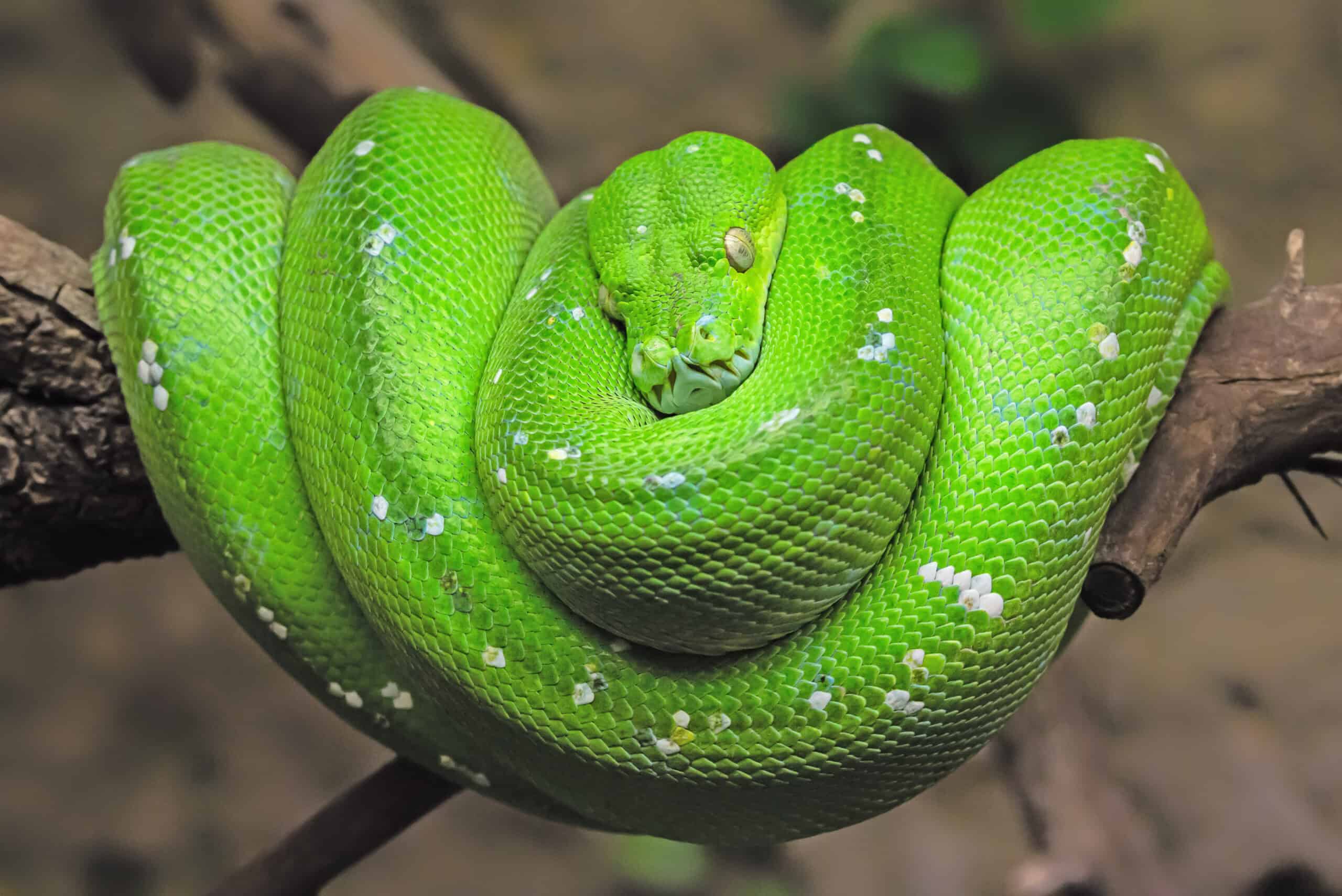
The Green Tree Python is renowned for its vibrant green scales and prehensile tail. Found in the rainforests of New Guinea and Australia, these snakes are excellent climbers and spend most of their time in trees. They can grow up to 7 feet long and exhibit striking color variations, including blue and yellow hues. Prices for these snakes can range from $300 to $1,500, depending on their color morph and lineage.
Radiated Tortoise (Astrochelys radiata)
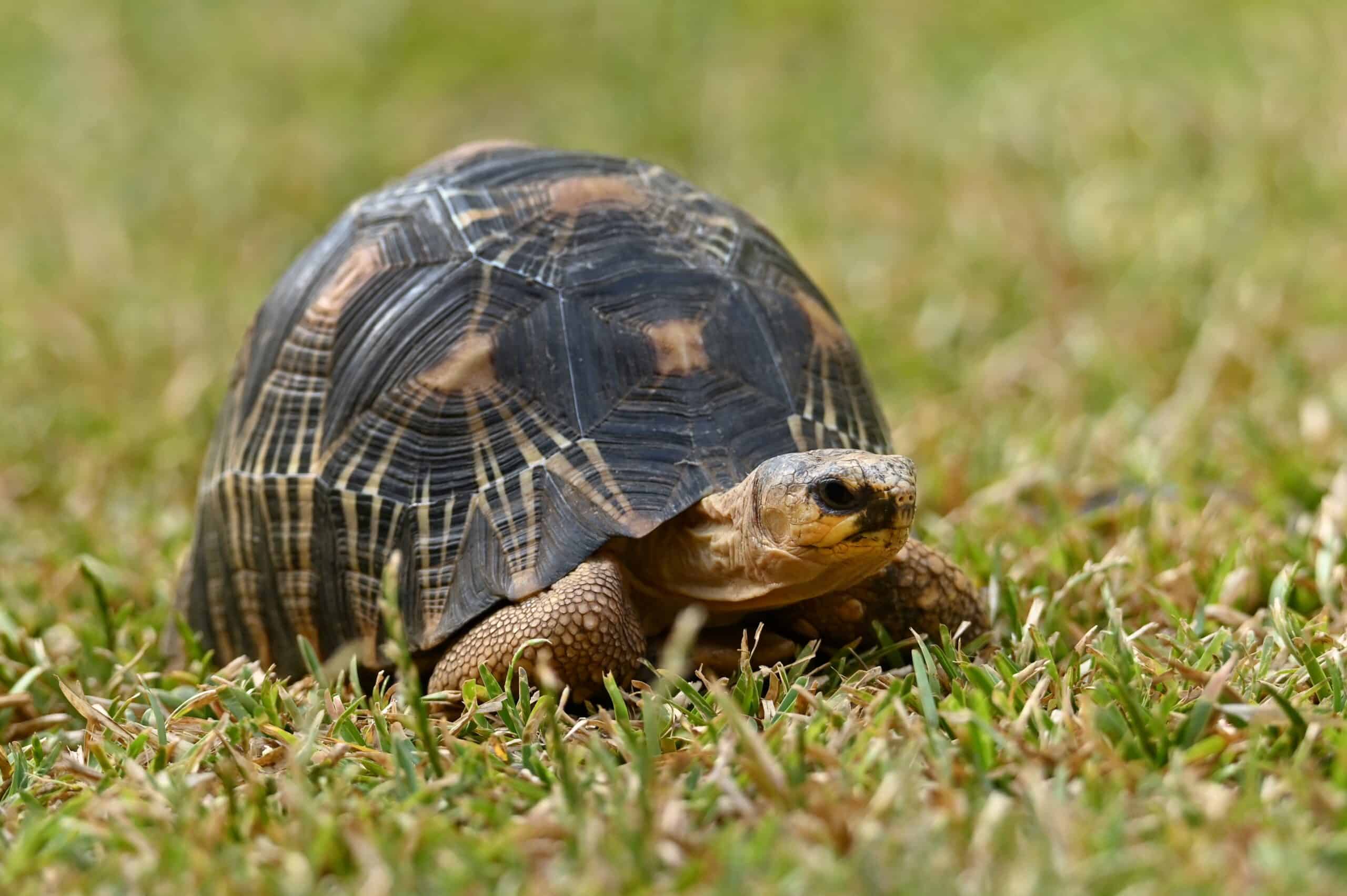
Radiated Tortoises are one of the most visually appealing tortoises, known for their star-patterned shells. Native to Madagascar, they are a critically endangered species, adding to their allure. These tortoises can grow up to 16 inches in length and have a lifespan of over 50 years. Their rarity and striking appearance make Radiated Tortoises highly sought after by collectors. These tortoises typically cost between $1,500 and $5,000, reflecting their conservation status and beauty. They require a warm, humid environment and a diet rich in leafy greens.
Emerald Tree Boa (Corallus caninus)
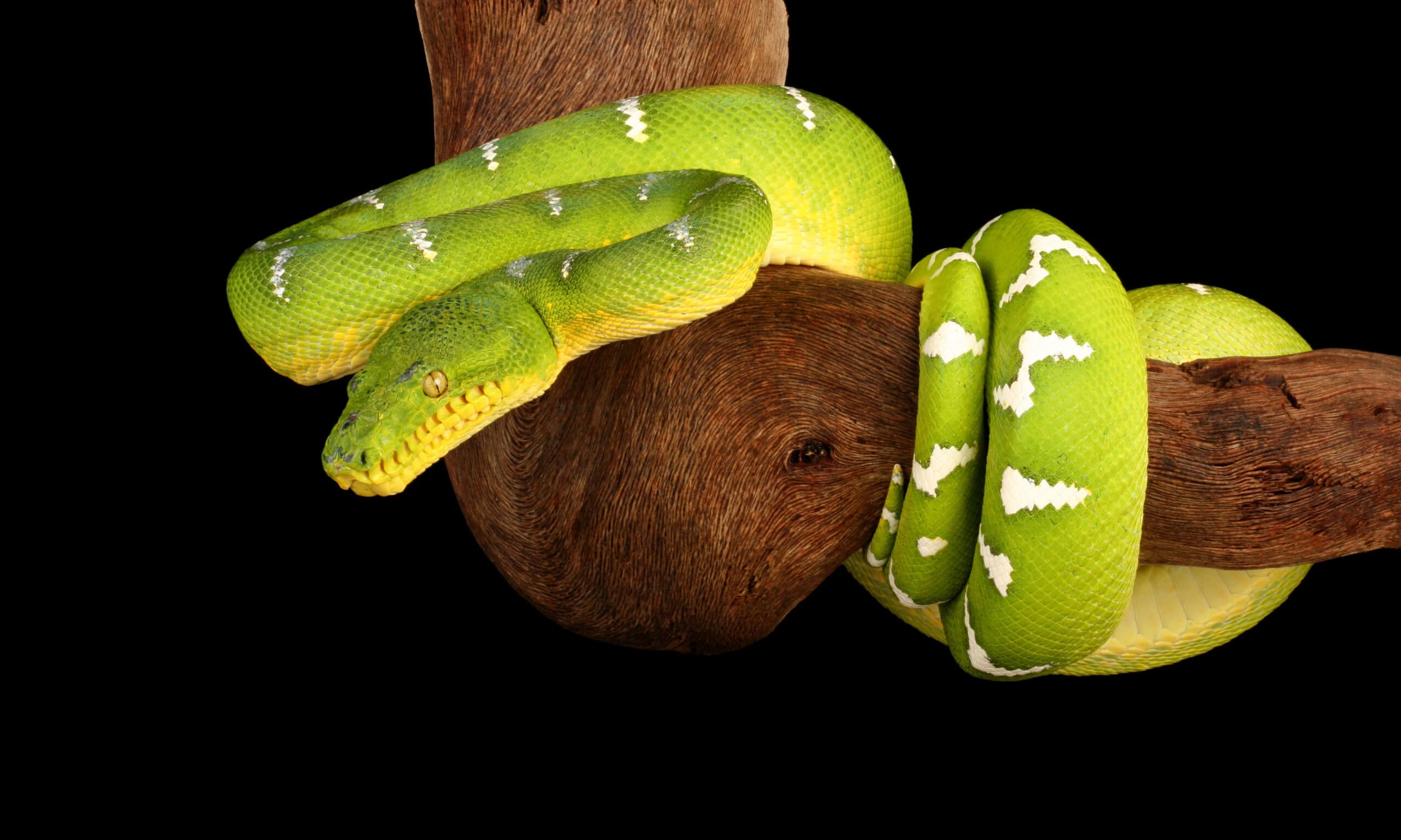
The Emerald Tree Boa is famous for its brilliant green color and white markings. Found in the rainforests of South America, these snakes are arboreal and spend most of their time in trees. They can grow up to 6 feet long and have a distinctive, coiled resting posture. Prices for these snakes can range from $200 to $1,000, depending on their age and origin. They require high humidity and a temperature-controlled environment to thrive.
Panther Chameleon (Furcifer pardalis)
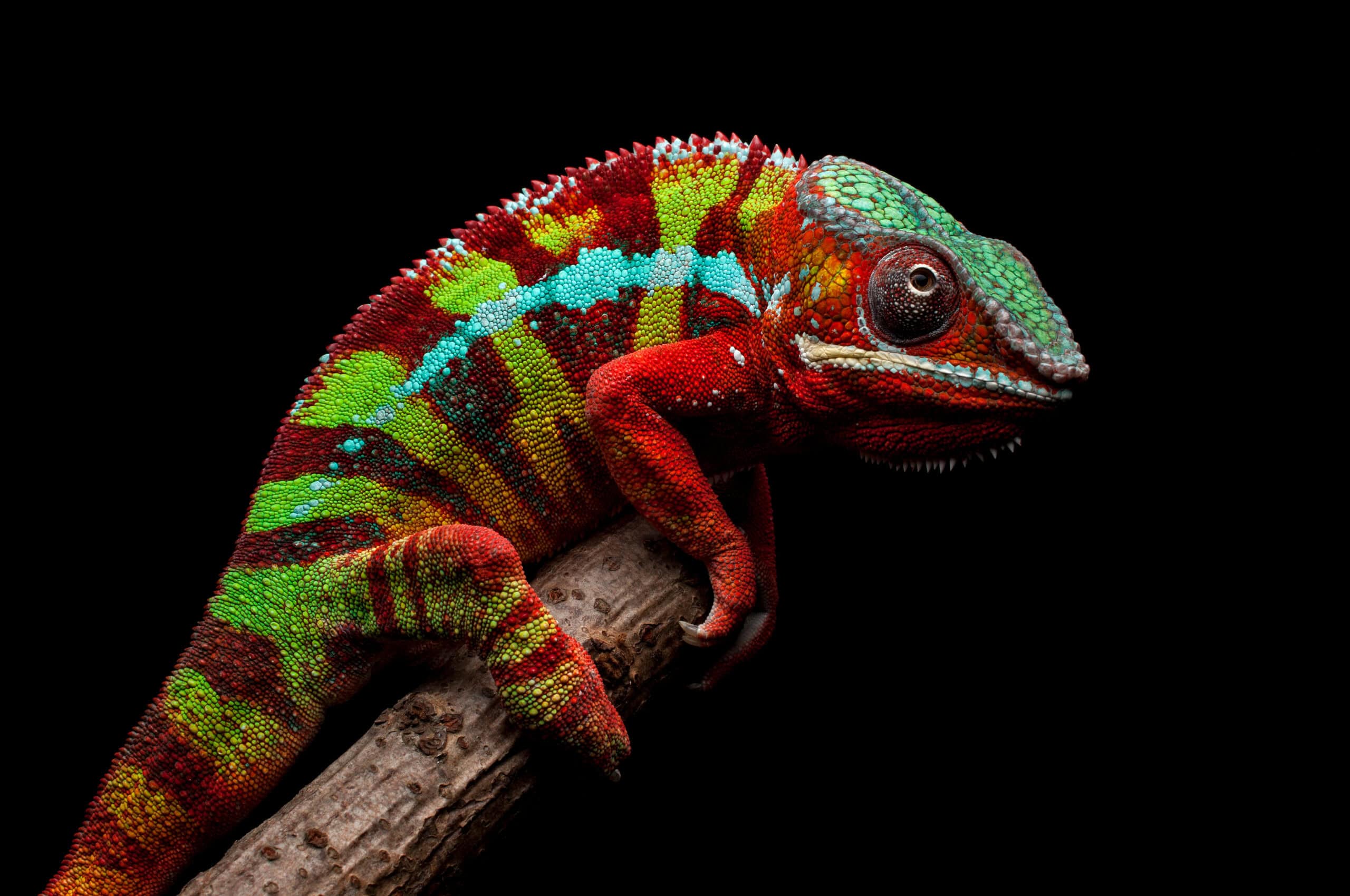
The Emerald Tree Boa is famous for its brilliant green color and white markings. Found in the rainforests of South America, these snakes are arboreal and spend most of their time in trees. They can grow up to 6 feet long and have a distinctive, coiled resting posture. These snakes can be valued between $200 and $1,000, depending on their age and origin. They require high humidity and a temperature-controlled environment to thrive. Their captivating looks and relatively low-maintenance care make them a popular choice among snake collectors.
Leopard Gecko (Eublepharis macularius)
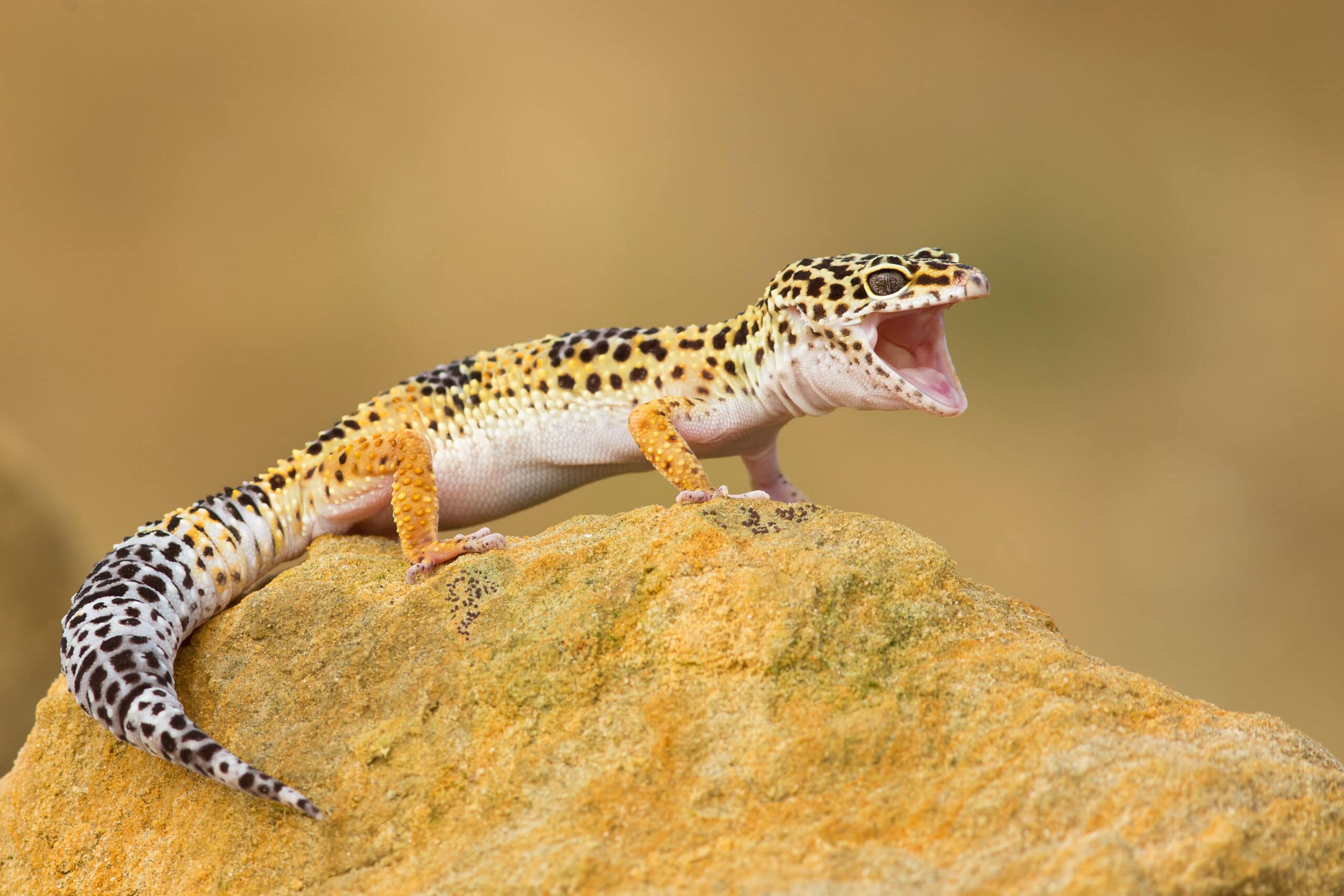
Leopard Geckos are small, nocturnal lizards native to the arid regions of Pakistan and India. They are known for their diverse color morphs, including albino, tangerine, and super snow. These geckos have a docile nature and are relatively easy to care for, making them popular among beginners and experienced collectors alike. Collectors prize Leopard Geckos for their variety of morphs and manageable care requirements. Prices can range from $20 to $500, depending on the rarity of the morph. They require a dry, warm environment and a diet of insects.
Asian Water Monitor (Varanus salvator)
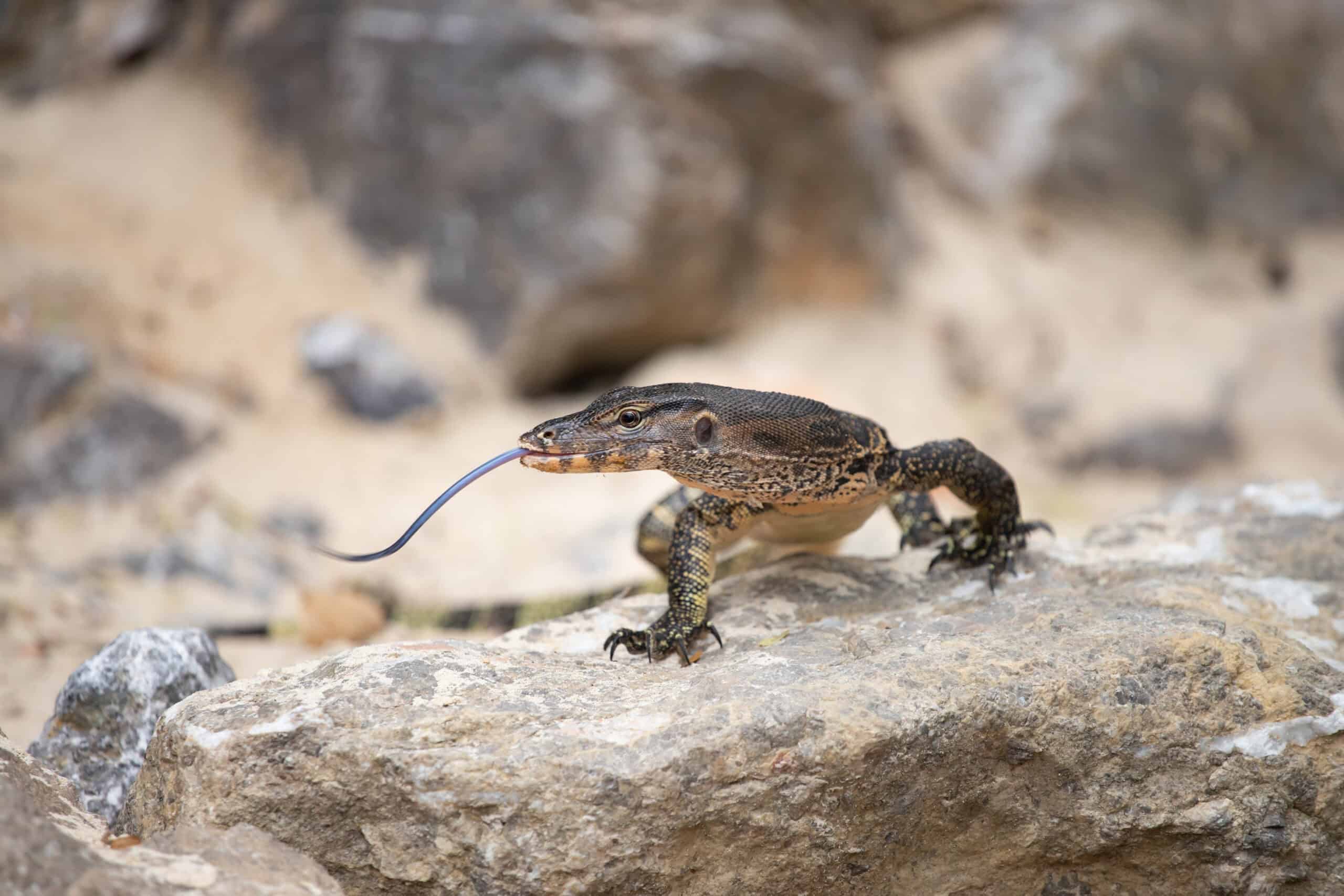
The Asian Water Monitor is one of the largest monitor lizards, native to Southeast Asia. They can grow up to 9 feet long and have a robust, muscular build. These monitors are semi-aquatic and require a spacious enclosure with access to water for swimming. These monitors can be valued between $200 and $1,000, reflecting their size and care requirements. They need a large, temperature-controlled habitat and a varied diet. Their striking appearance and engaging behavior make them a prized addition to any collection.
Mexican Black Kingsnake (Lampropeltis getula nigrita)
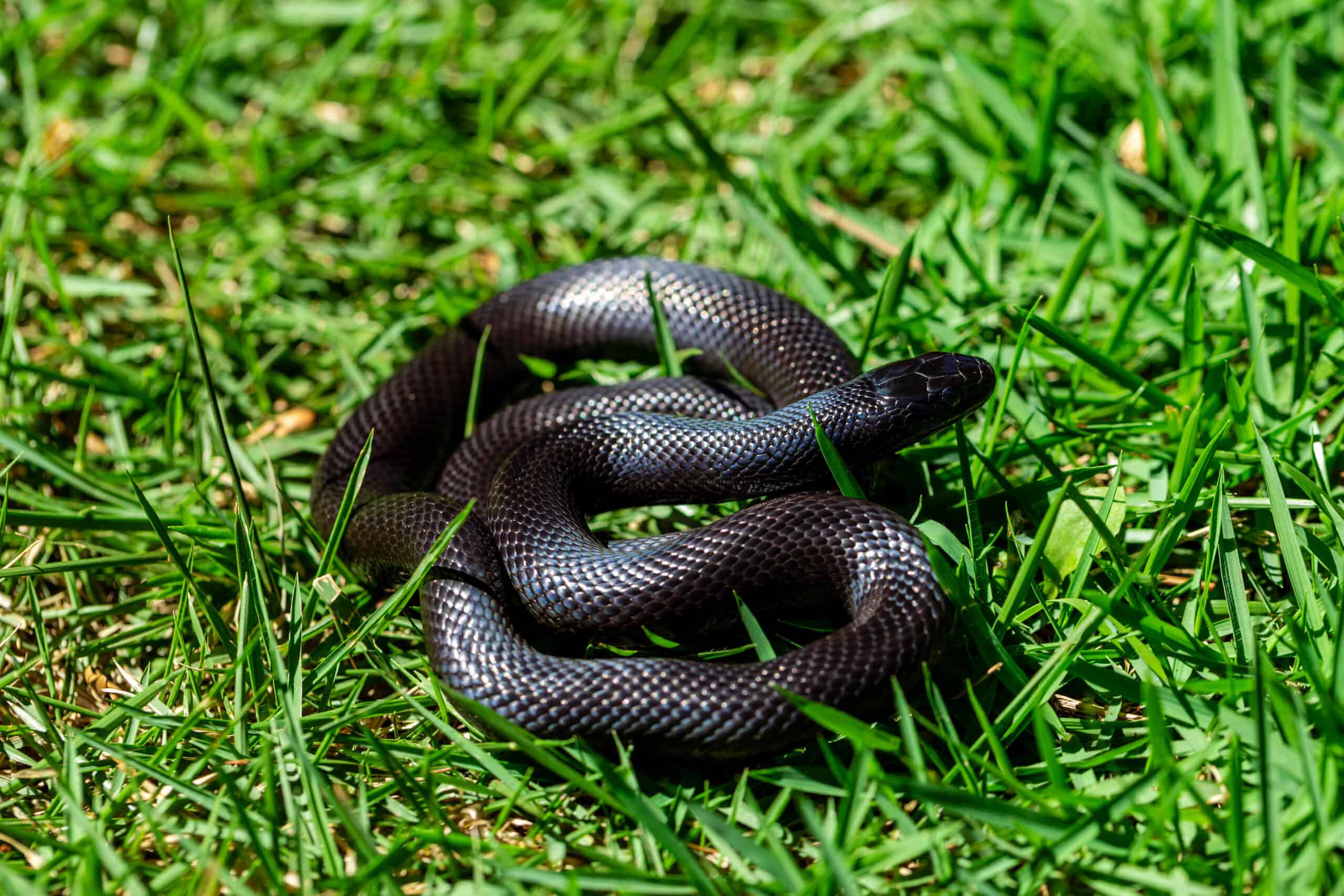
Mexican Black Kingsnakes are known for their sleek, jet-black coloration. Native to the deserts of Mexico and the southwestern United States, these snakes can grow up to 4 feet long. They are known for their calm demeanor and ease of care, making them a favorite among collectors. Prices can range from $100 to $300, depending on their size and origin. They require a dry, warm environment and a diet of rodents. Their beautiful coloration and manageable care make them a popular choice for snake enthusiasts.
Red-Eyed Crocodile Skink (Tribolonotus gracilis)
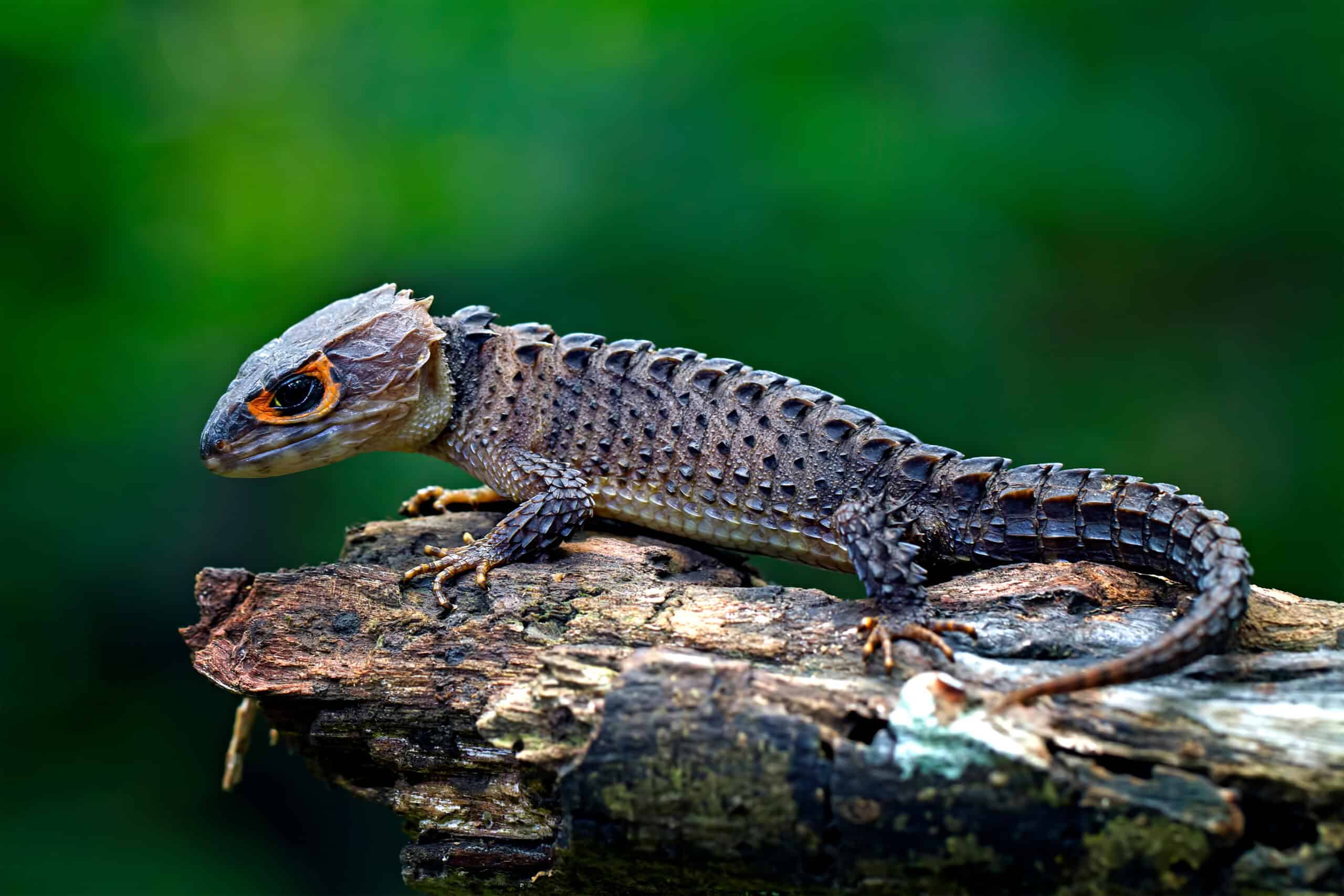
The Red-Eyed Crocodile Skink is a fascinating and unique reptile. Native to New Guinea, they have a striking appearance with bright red eyes and a body covered in armor-like scales. These skinks are small, typically growing up to 8 inches long. They are semi-arboreal and prefer a humid environment with plenty of hiding spots. They are often priced between $100 and $300. Proper care involves maintaining high humidity and providing a diet of insects.
Bearded Dragon (Pogona vitticeps)
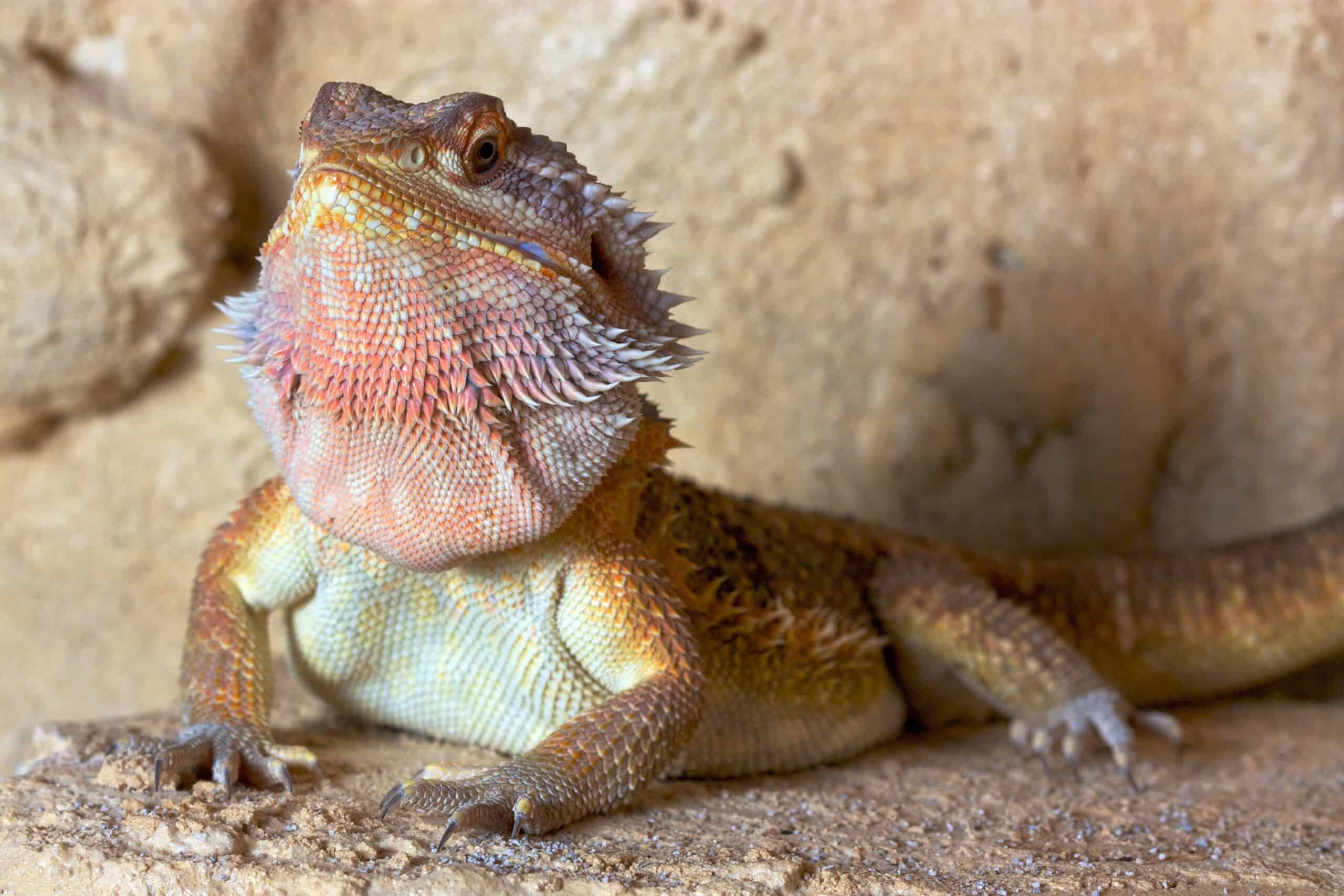
Bearded Dragons are beloved for their friendly nature and ease of care. Originating from Australia, these lizards are known for their “beard” of spiky skin. They can grow up to 24 inches long and come in various color morphs, including citrus and red. Bearded Dragons are diurnal, active during the day, and enjoy basking in the sun. They are typically valued between $50 and $200. They require a warm, dry environment and a diet of insects and vegetables.
Crested Gecko (Correlophus ciliatus)
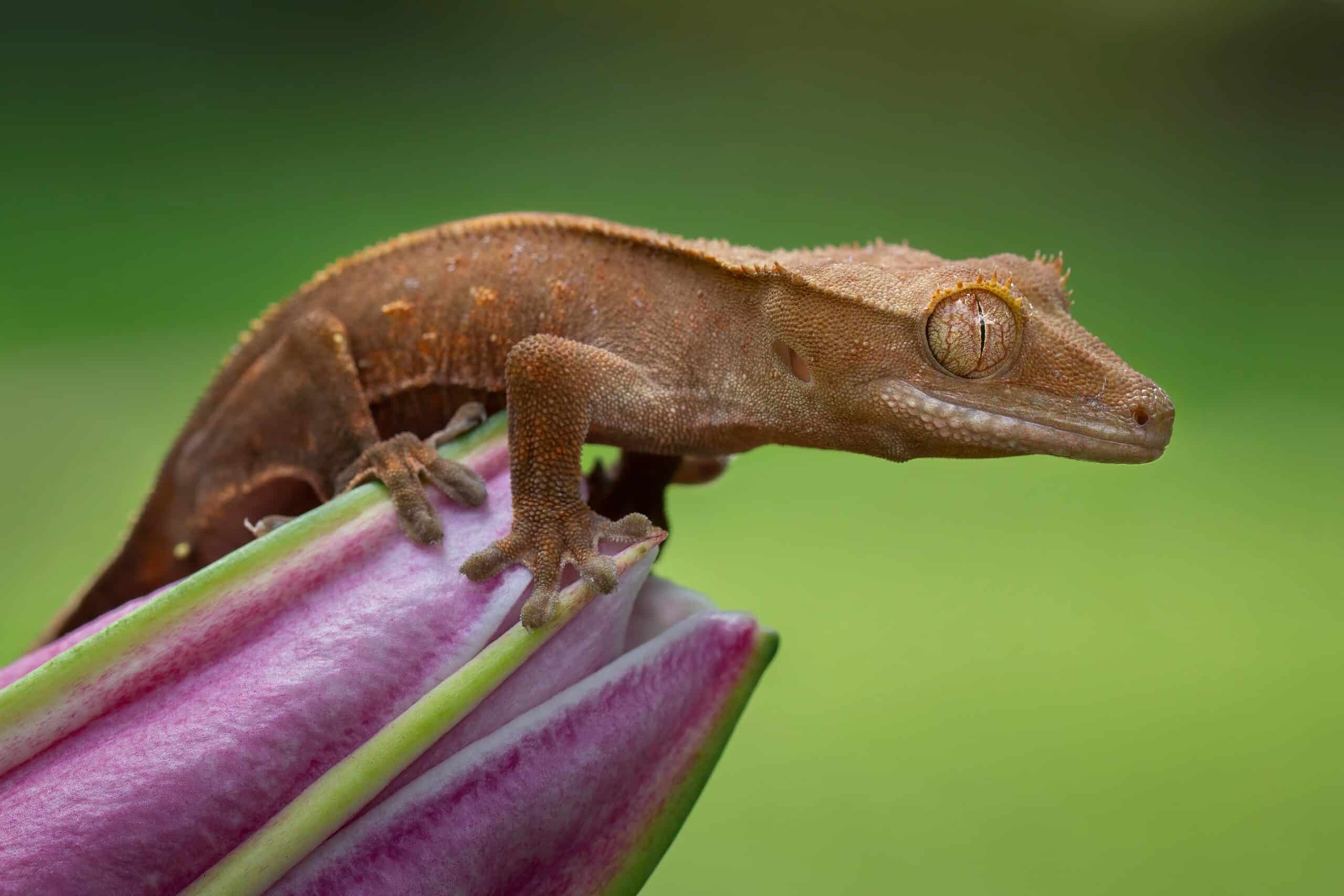
Crested Geckos, once thought extinct, are now a staple in the reptile trade. Native to New Caledonia, they are known for their unique crests running from their eyes to their tails. These geckos are small, reaching up to 8 inches in length. They are nocturnal and require a humid environment with plenty of vertical space. Collectors highly value Crested Geckos for their distinctive appearance and easy care requirements. They are usually priced between $50 and $200. Proper care includes maintaining high humidity and providing a diet of insects and fruit.
Uromastyx (Uromastyx spp.)
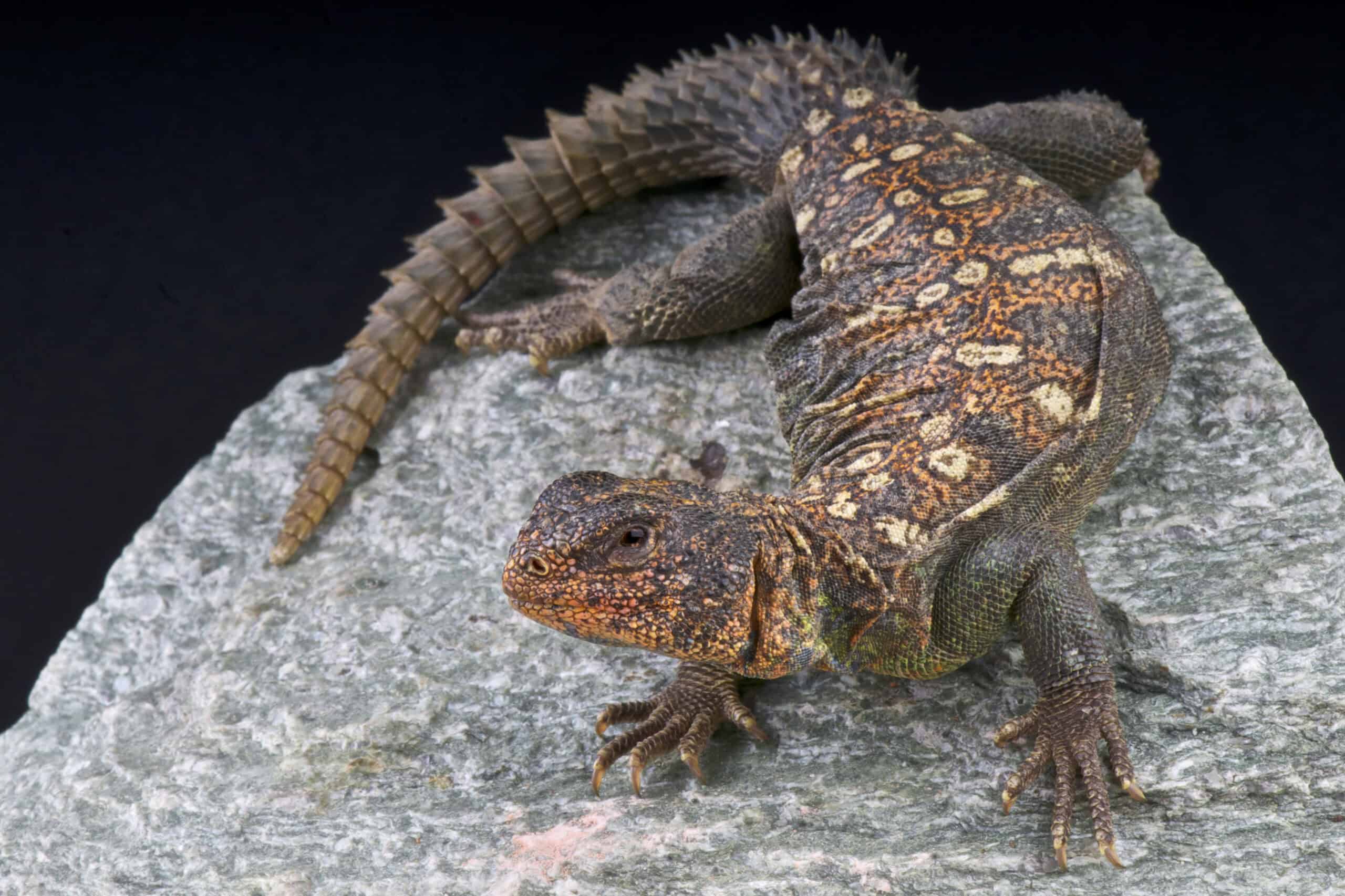
Uromastyx lizards, also known as spiny-tailed lizards, are native to the deserts of North Africa and the Middle East. They are known for their robust bodies and spiny tails. These lizards can grow up to 18 inches long and exhibit a variety of colors, including red, yellow, and blue. Uromastyx are herbivores, primarily feeding on leafy greens and vegetables. They typically cost between $100 and $300. They require a hot, dry environment and a diet rich in vegetables. Their striking appearance and resilient nature make them a desirable species for reptile enthusiasts.
Indian Star Tortoise (Geochelone elegans)
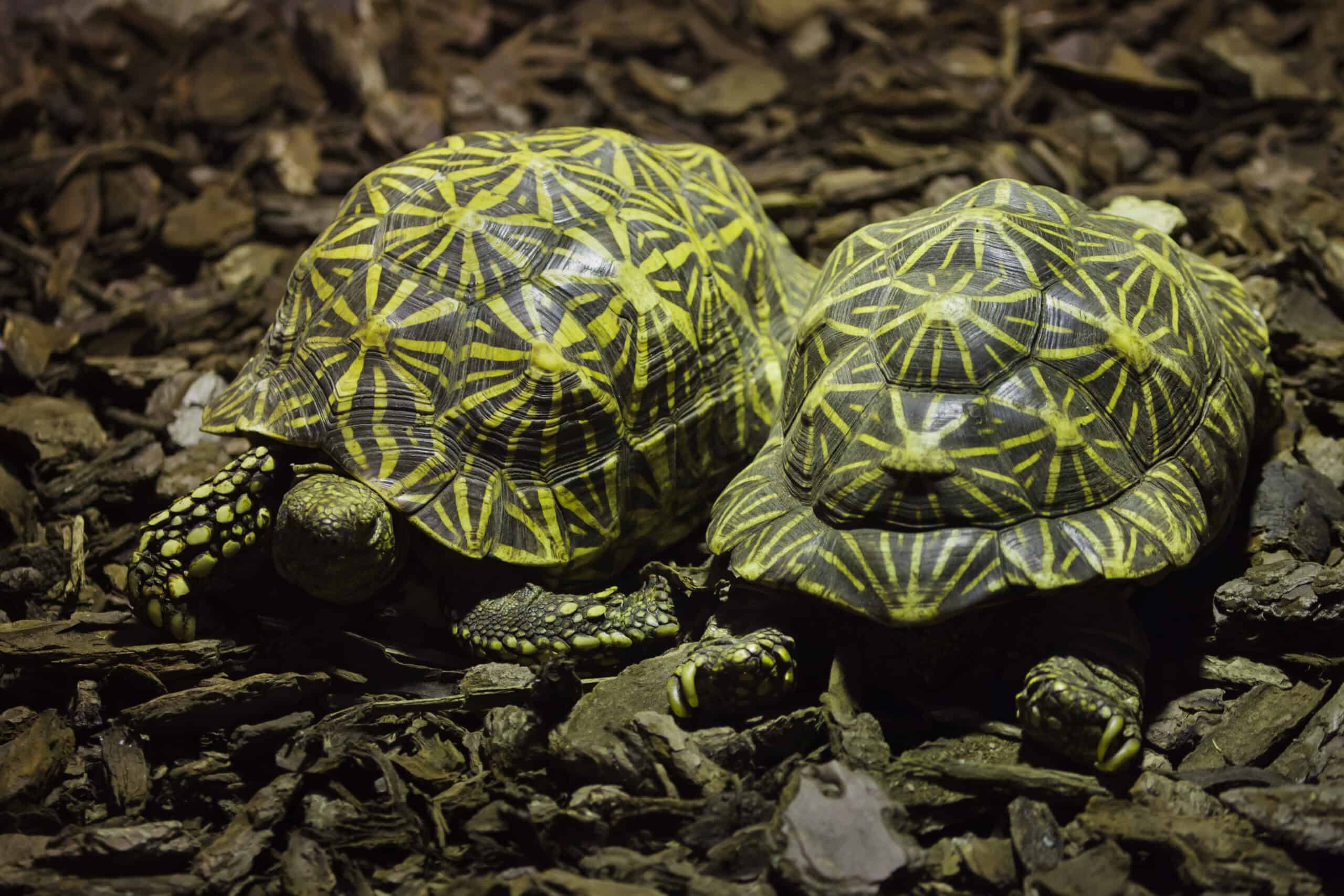
Indian Star Tortoises are known for their beautiful, star-patterned shells. Native to India and Sri Lanka, these tortoises can grow up to 12 inches long. They have a gentle disposition and can live for over 50 years. Indian Star Tortoises require a warm, humid environment and a diet of leafy greens and vegetables. They are often priced between $300 and $1,000. Proper care involves maintaining appropriate humidity and temperature levels.
Gila Monster (Heloderma suspectum)
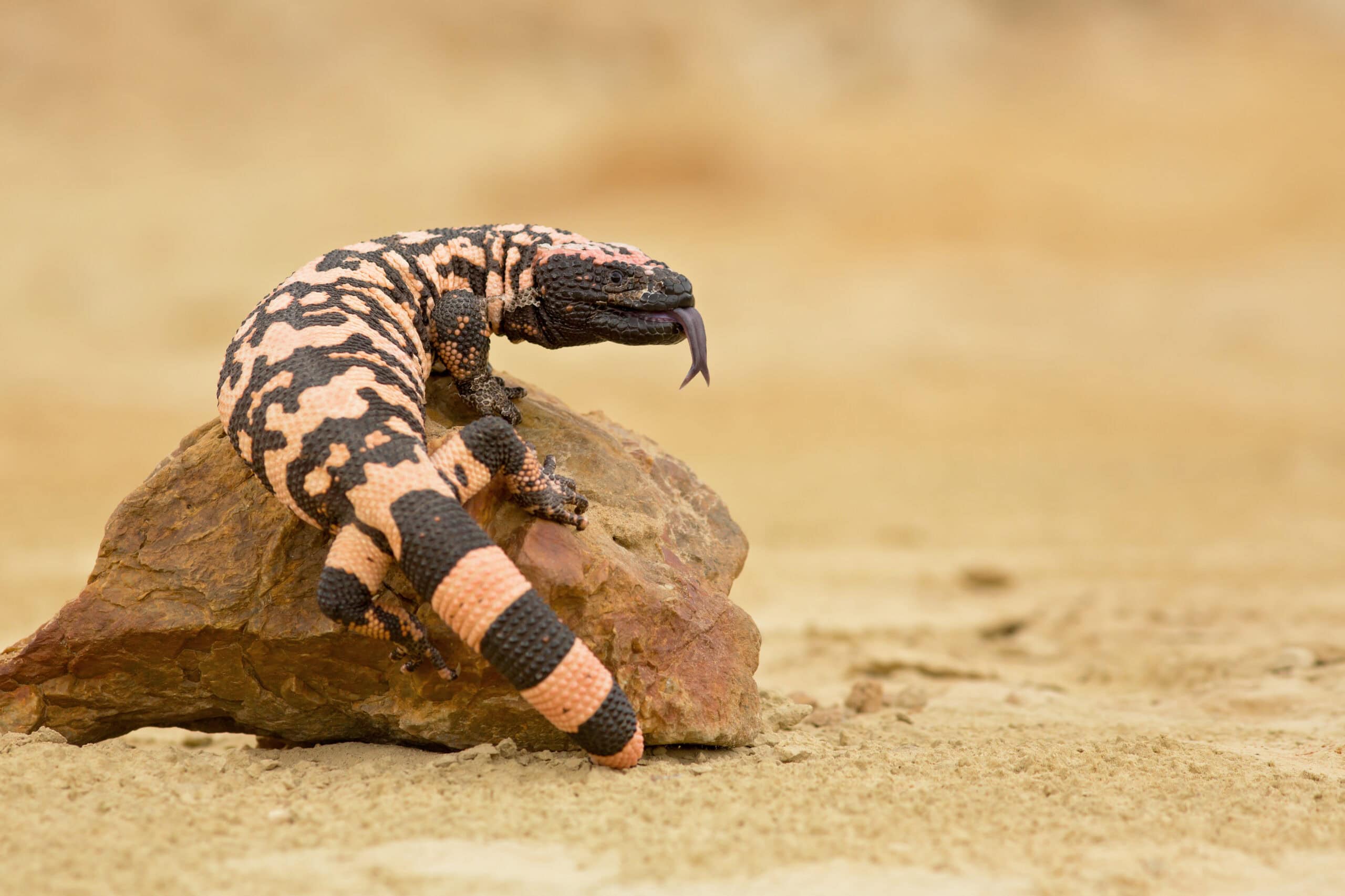
The Gila Monster is one of the few venomous lizards in the world. Native to the southwestern United States and northern Mexico, they are known for their bright, bead-like scales and slow movements. These lizards can grow up to 2 feet long and have a robust build. Gila Monsters require a dry, warm environment and a diet of small mammals and eggs. They are typically valued between $1,000 and $3,000. Proper care involves handling with caution due to their venomous bite.
Chinese Water Dragon (Physignathus cocincinus)
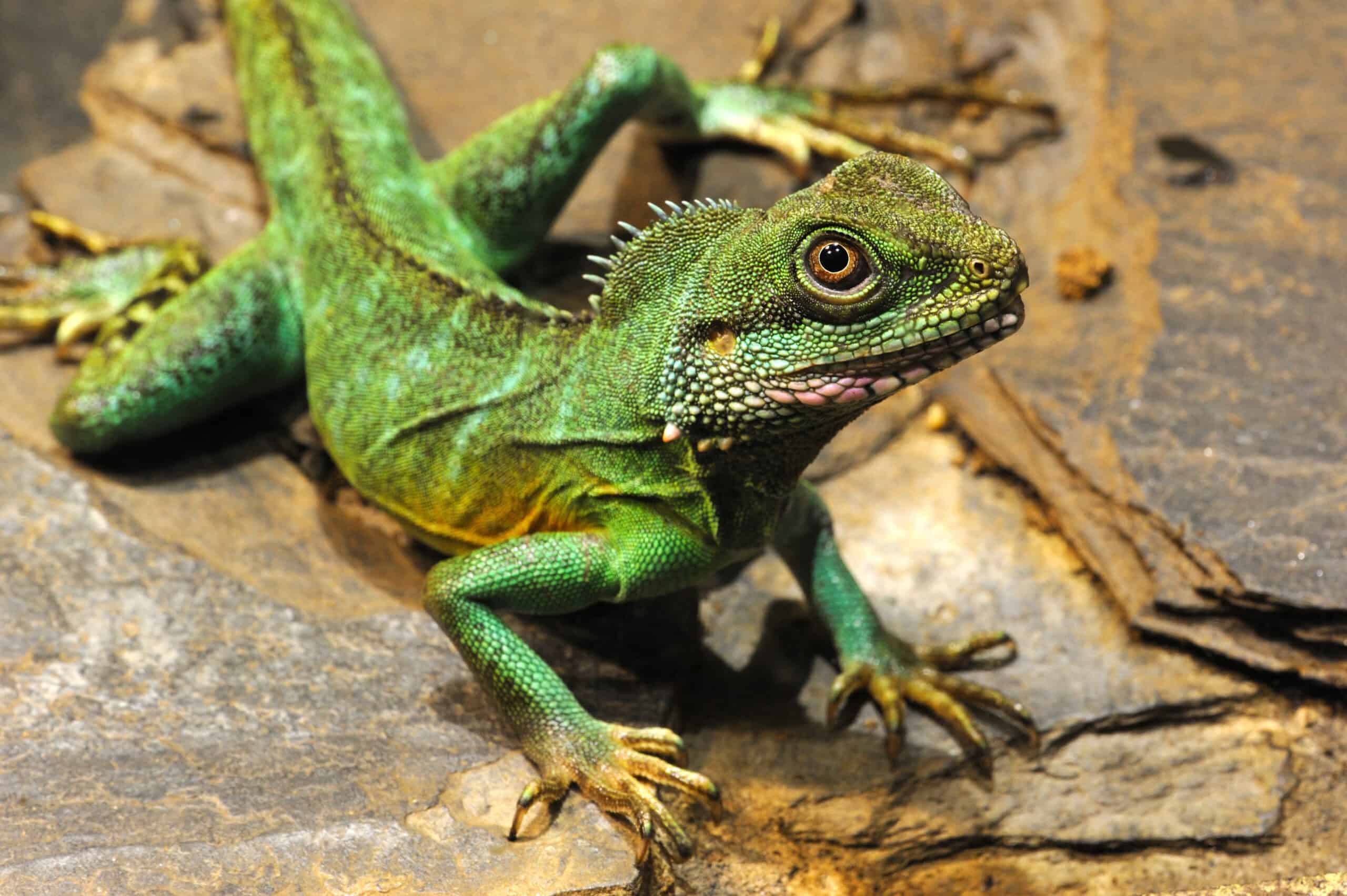
Chinese Water Dragons are known for their vibrant green color and impressive size. Native to China and other parts of Southeast Asia, these lizards can grow up to 3 feet long. They are semi-aquatic and enjoy basking and swimming. Chinese Water Dragons require a humid environment with access to water and plenty of vertical space. They are typically priced between $50 and $150. Proper care involves maintaining high humidity and providing a varied diet of insects and vegetables.
Argentine Black and White Tegu (Salvator merianae)
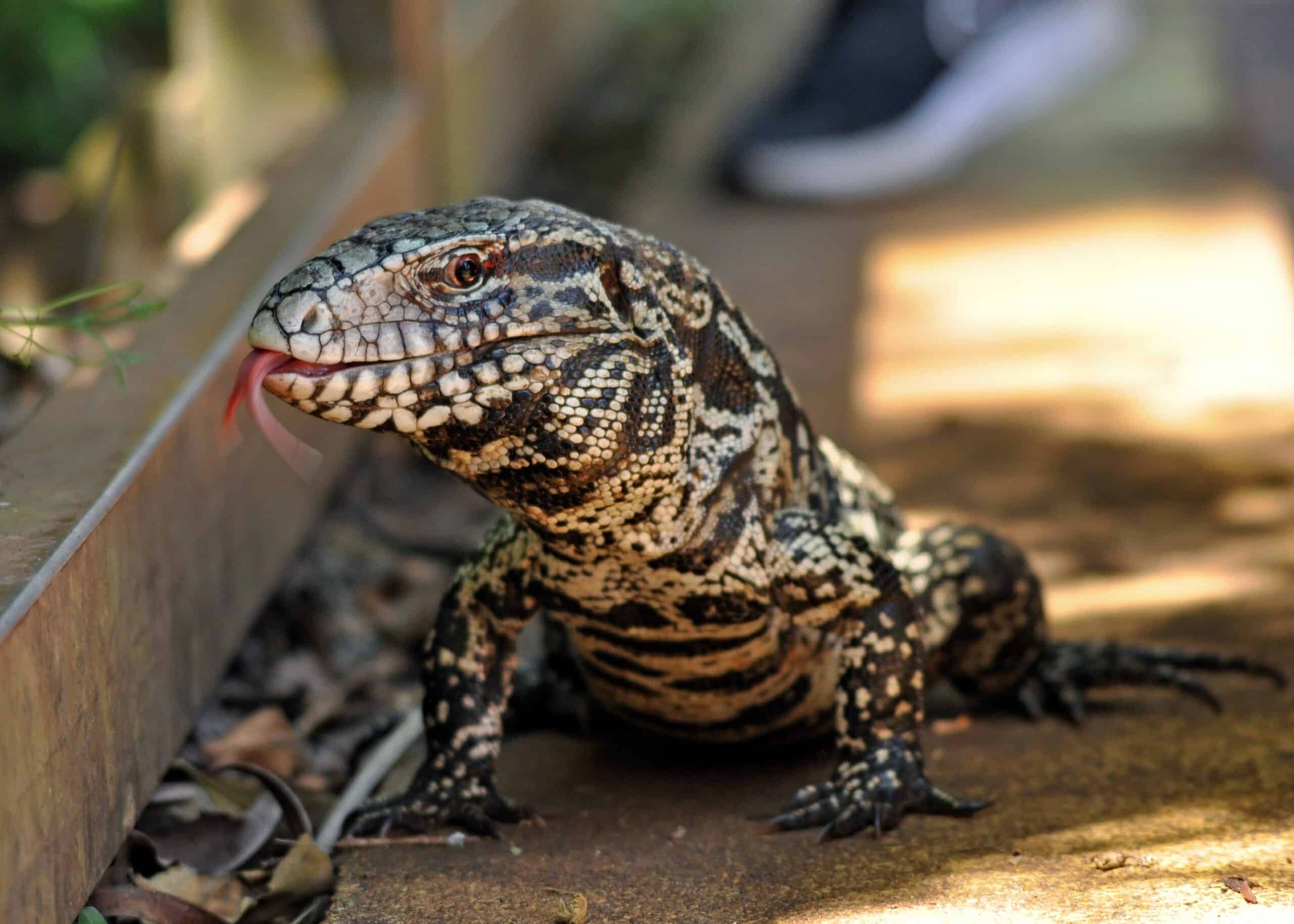
The Argentine Black and White Tegu is a large, intelligent lizard native to South America. Known for its striking black and white coloration, it can grow up to 4.5 feet long. These tegus are highly intelligent and can be trained to interact with their owners. They require a spacious enclosure and a varied diet of fruits, vegetables, and proteins. Collectors value Argentine Black and White Tegus for their impressive size and trainable nature. They are typically priced between $200 and $600. Proper care involves providing a large habitat and maintaining appropriate temperatures and humidity.
Frilled Dragon (Chlamydosaurus kingii)
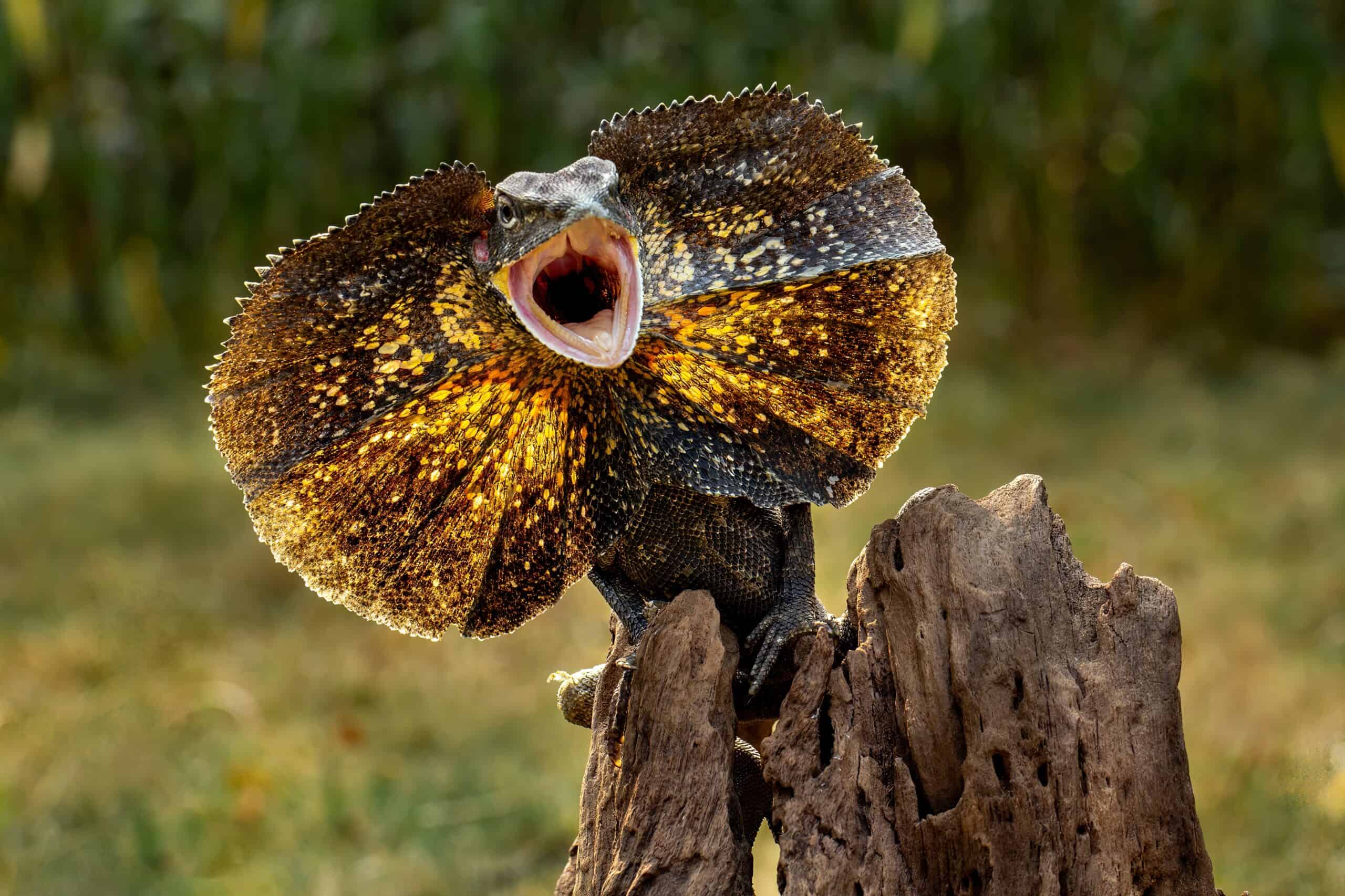
Frilled Dragons, native to Australia and New Guinea, are known for their unique frill around their neck. When threatened, they display this frill to appear larger and more intimidating. These dragons can grow up to 3 feet in length and have a primarily insectivorous diet. They require a warm, humid environment with plenty of vertical space. They typically cost between $150 and $300. Proper care involves maintaining high humidity and providing a varied diet of insects.
Gaboon Viper (Bitis gabonica)
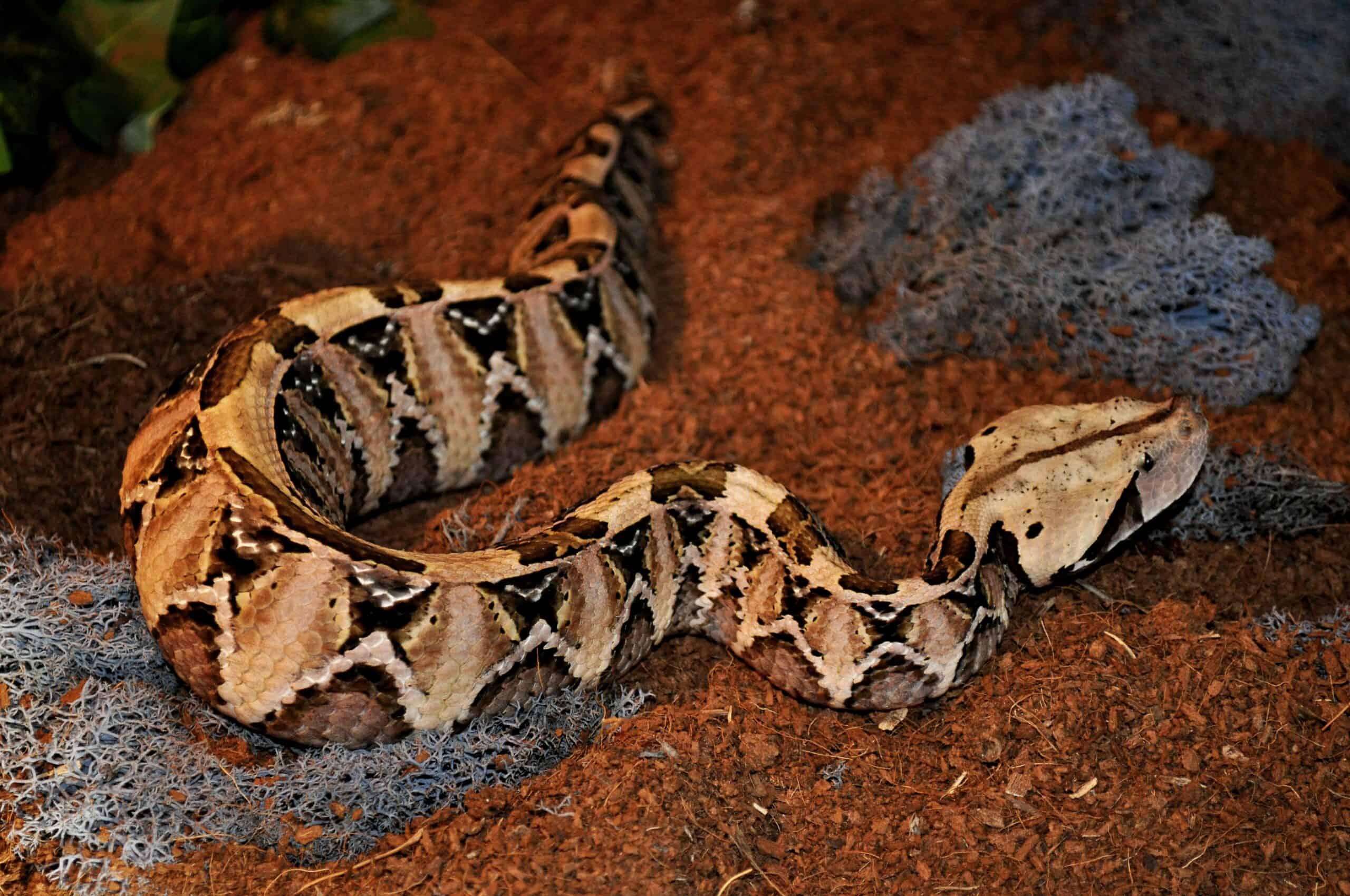
The Gaboon Viper is renowned for its beautiful, intricate patterns and large size. Native to the rainforests of Central Africa, this viper can grow up to 6 feet long. It has the longest fangs and highest venom yield of any snake. Gaboon Vipers are known for their calm demeanor and impressive ambush hunting skills. They are often valued between $200 and $500. Proper care involves a secure, humid enclosure and a diet of rodents. Their striking patterns and unique features make them highly sought after by experienced snake collectors.
Rhinoceros Iguana (Cyclura cornuta)
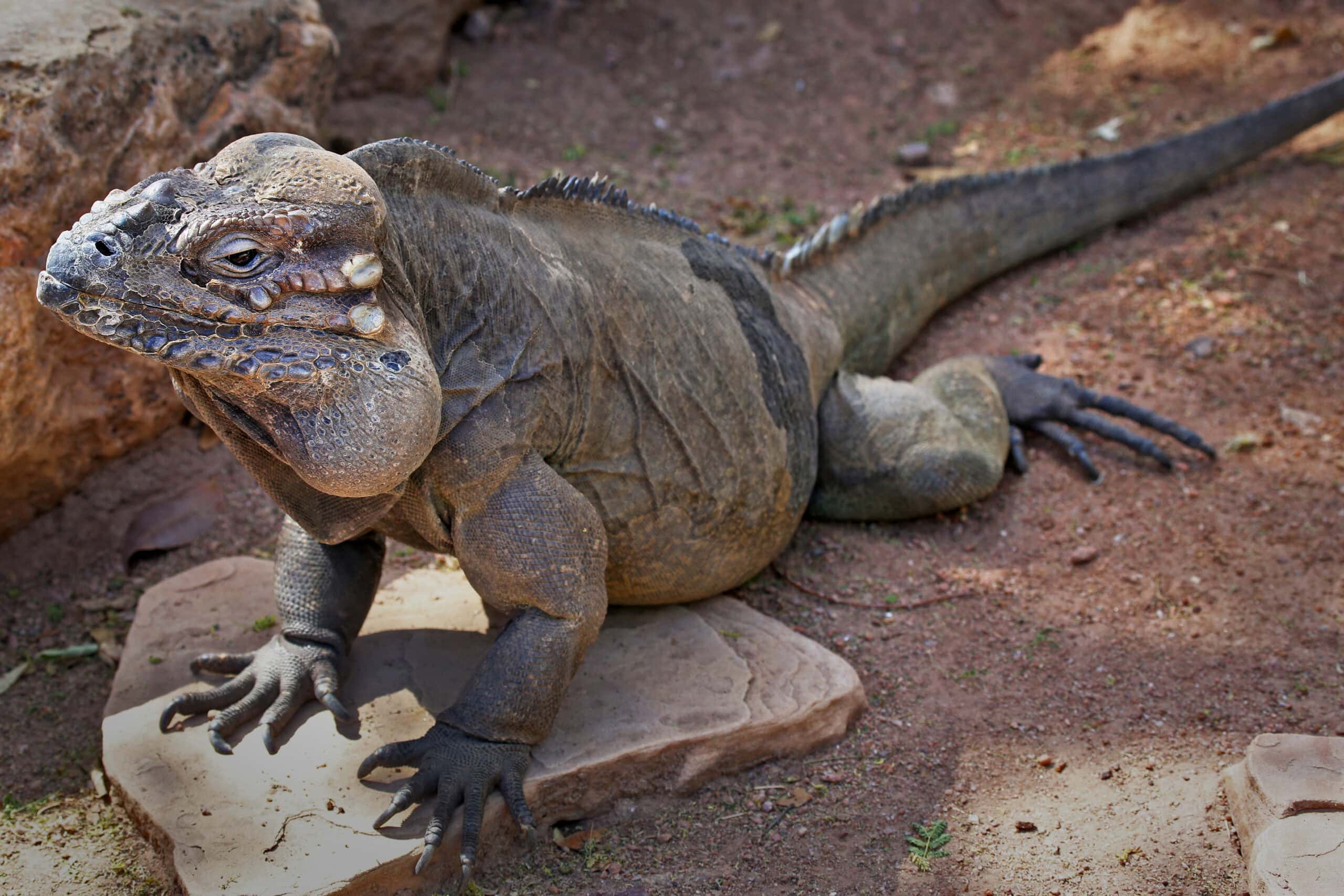
Rhinoceros Iguanas are large, robust lizards native to the Caribbean. They are named for the horn-like protrusions on their snouts. These iguanas can grow up to 4.5 feet long and have a lifespan of up to 20 years. They require a spacious enclosure with UVB lighting and a diet of leafy greens, fruits, and vegetables. They typically cost between $500 and $1,500. Proper care involves providing a large habitat and maintaining proper lighting and diet. Their unique looks and long lifespan make them a prized possession for dedicated reptile enthusiasts.
Sand Boa (Eryx spp.)
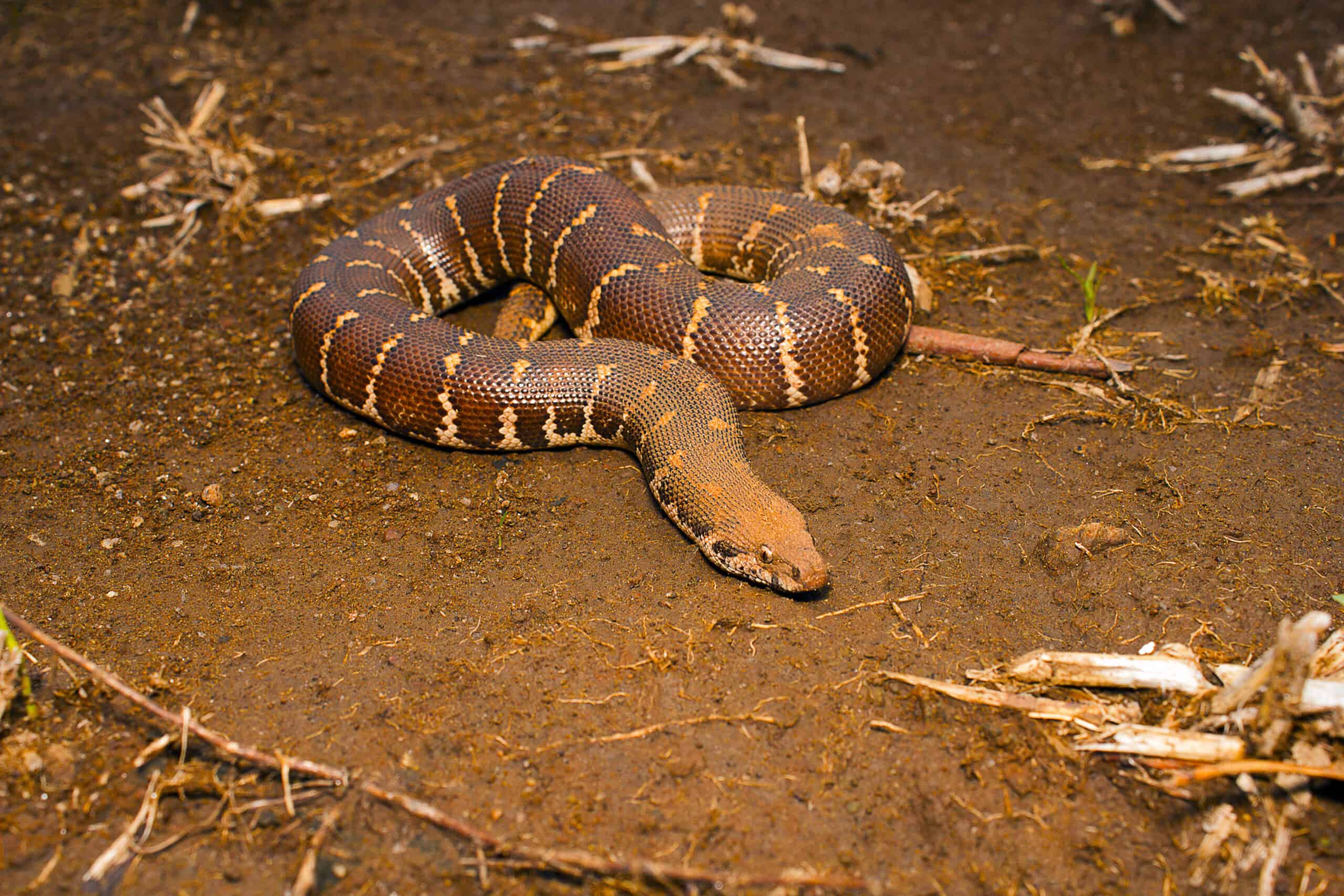
Sand Boas are small, burrowing snakes native to Africa, the Middle East, and South Asia. They are known for their stout bodies and smooth scales. These boas typically grow up to 3 feet long and have a docile nature. They require a dry, sandy environment and a diet of rodents. They are usually priced between $50 and $200. Proper care involves providing a substrate for burrowing and maintaining appropriate temperatures. Their calm demeanor and unique burrowing behavior make them a favorite among snake enthusiasts.
This article originally appeared on Rarest.org.
More from Rarest.org
1977 Kennedy Half Dollar Value Guide
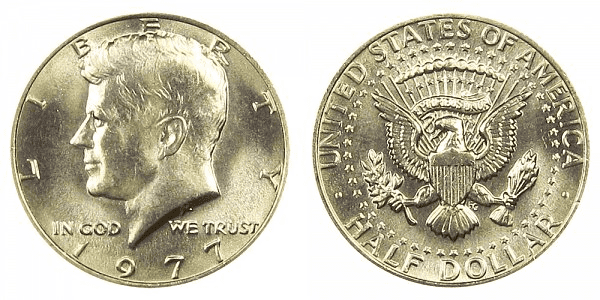
The Kennedy Half Dollar, one of the most well-known and cherished coins honouring one of the most revered US presidents—John F. Kennedy—is preserved by both collectors and non-collectors. Read More.
1978 Eisenhower Dollar Coin Value Guide

The 1978 Eisenhower dollar is primarily made of 75% copper and 25% nickel with its core made of pure copper but it is covered with a mixture of copper and nickel. Read More.
1966 Lincoln Penny Value Guide
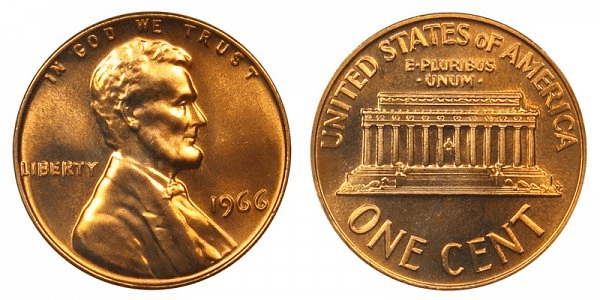
The 1966 Lincoln penny is made of 95% copper and 5% zinc. The same composition is given to Lincoln pennies made from 1909 to 1942 and from 1944 to 1982. Read More.
